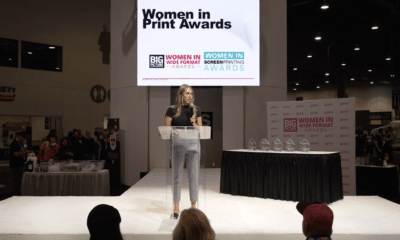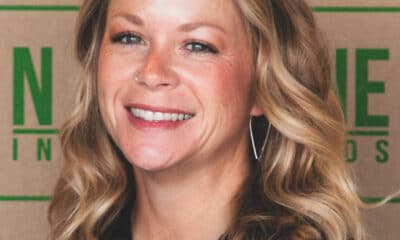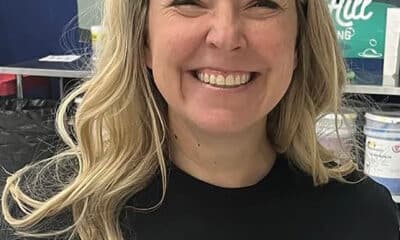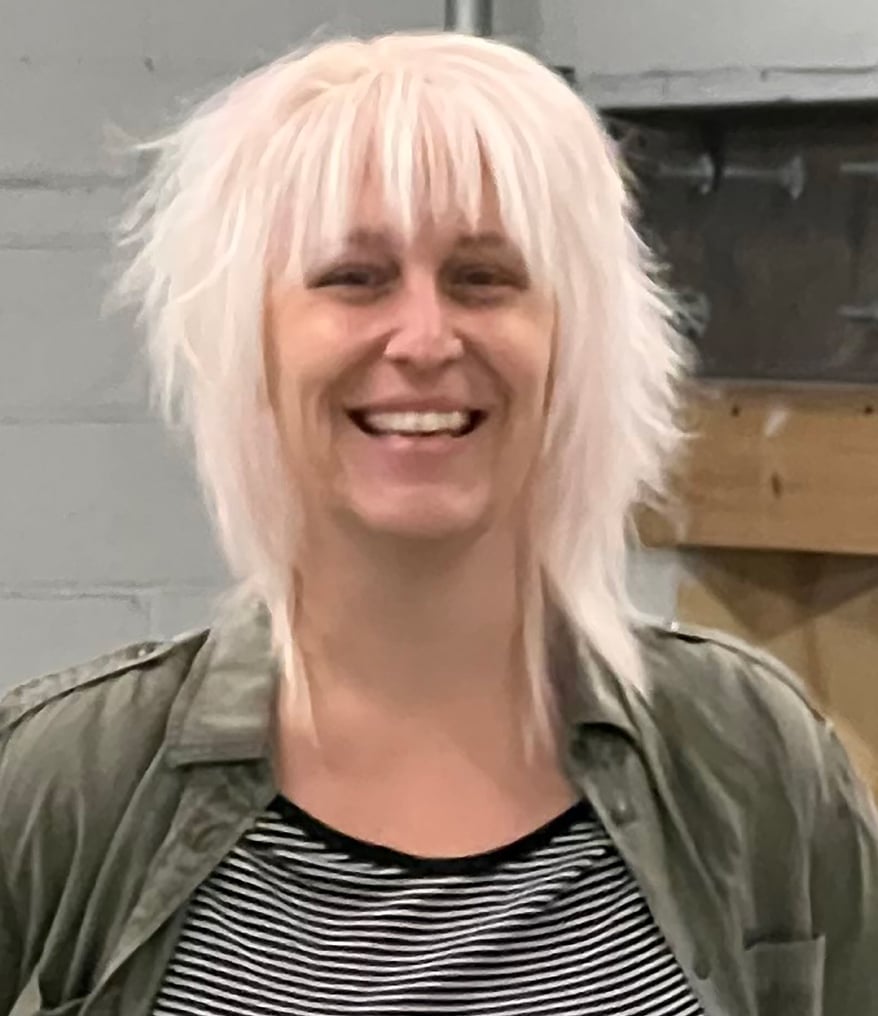
Nikki Bowen
Co-owner | Cotton Street Apparel, Winston Salem, North Carolina
Q: Your nomination form states: “Nikki spent several years managing a popular national retail chain store. That background has really helped [her and co-owner Kyle Woodall] propel the business together.” How has understanding a different industry affected your success in the screen printing space?
Nikki: I joined our shop full-time in 2014 with the primary role of overseeing the business operations, allowing Kyle to focus solely on production. Although the shop was smaller back then, I quickly learned the intricacies of production, as our shop specializes in a range of printing techniques. My knowledge of production isn’t just essential for effective client engagement during the selling process; it also ensures our production team is successful with the jobs we sell and [helps] maintain low downtime on press. Having a retail background helps me to understand our clients’ real need, versus just selling them a product for the sake of making a sale or because the profit margin might be a bit higher. I want to be my clients’ trusted source. Therefore, my main objective is to provide my clients with products and solutions that align with what they need, building a relationship that will promote long term clients.
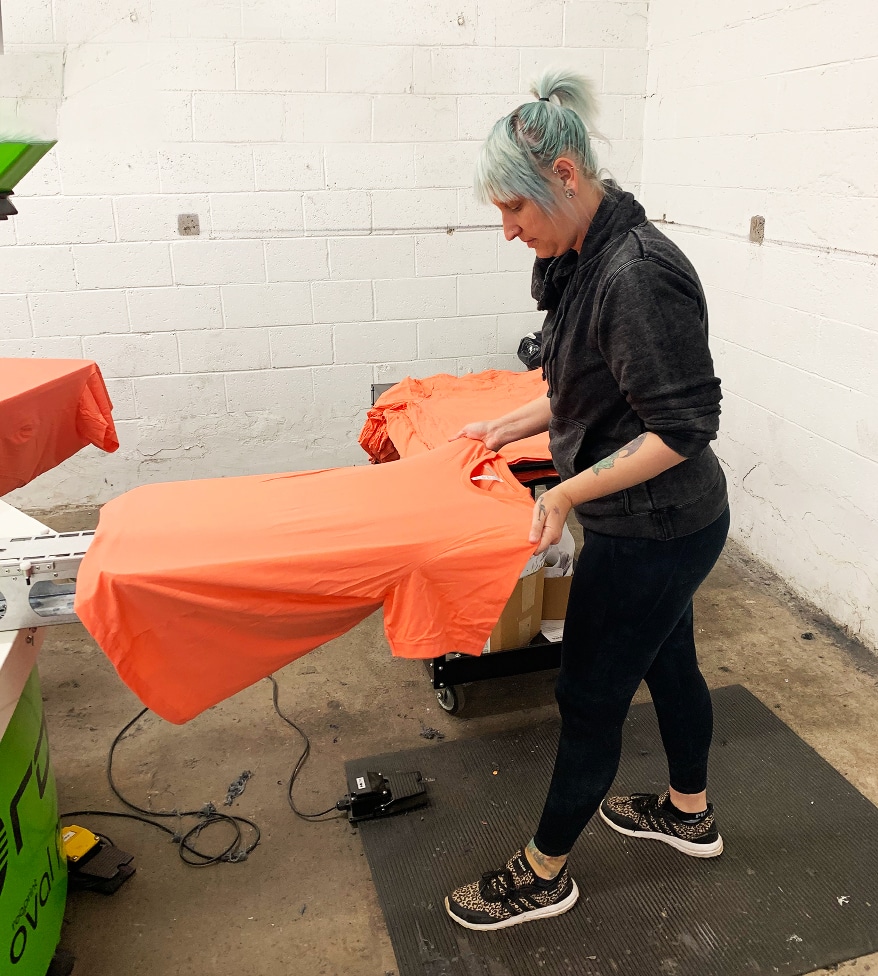 Nikki’s nominator writes, “She learned every angle she could [about production], right down to the screen reclaim and deep production side. She can run anything she needs in that business, and that experience and knowledge has helped her be an incredible asset to Cotton Street Apparel and to the industry as a whole.”
Nikki’s nominator writes, “She learned every angle she could [about production], right down to the screen reclaim and deep production side. She can run anything she needs in that business, and that experience and knowledge has helped her be an incredible asset to Cotton Street Apparel and to the industry as a whole.”
Q: It also states: “Nikki is quick to lend a hand, listen, offer feedback, or provide her knowledge and resources whenever and wherever she can. She never stops learning and always passes on any valuable tools and info to others along the way.” Why do you place so much value on creating friendships and partnerships and supporting others, specifically women?
Nikki: Often, women within a shop find themselves in smaller numbers. I have personally encountered unfavorable treatment from male vendors. Anytime I explain to a new person what PGM [Print Girl Mafia] is — and I tell them how many people are in a closed facebook page — I get the comment, “I had no idea there were that many women in the industry.” I’d love to see that comment change. By advocating for and uplifting women in the industry, you play a role in driving larger transformation. Speaking up about gender equality and inclusivity goes beyond individual gains, and can influence the entire industry on new standards and practices, leading to a more balanced and diverse landscape.
Q: What does being a woman in the screen printing industry and the founder of Print Girl Mafia mean to you?
Nikki: I’m definitely not the only person to found this crew. There are nine ladies from our original group text who played a significant role in helping PGM get to where it is today. Our initial intention was just a group chat of nine women who understood the day-to-day struggles of what it is like to be a woman in this industry. It wasn’t until after ISS 2022, after hearing so many stories from other women in the industry, that we started having conversations around what it could be. Seeing what PGM has evolved into in such a short amount of time is very revealing. It says to me that, while the issues may have been talked about sparsely, there wasn’t really a major effort to bring certain issues to light or to create events centered around women-only that were easily accessible. PGM [is about creating] that safe space that we all needed, and it creates the potential to make changes in the industry that will open the door and hopefully make working in this industry easier for future generations of women.
Advertisement


 Case Studies2 months ago
Case Studies2 months ago
 Art, Ad, or Alchemy2 months ago
Art, Ad, or Alchemy2 months ago
 Andy MacDougall2 months ago
Andy MacDougall2 months ago
 Columns4 weeks ago
Columns4 weeks ago
 Editor's Note3 weeks ago
Editor's Note3 weeks ago
 Marshall Atkinson3 weeks ago
Marshall Atkinson3 weeks ago
 Thomas Trimingham2 months ago
Thomas Trimingham2 months ago
 News & Trends2 months ago
News & Trends2 months ago
 Nikki’s nominator writes, “She learned every angle she could [about production], right down to the screen reclaim and deep production side. She can run anything she needs in that business, and that experience and knowledge has helped her be an incredible asset to Cotton Street Apparel and to the industry as a whole.”
Nikki’s nominator writes, “She learned every angle she could [about production], right down to the screen reclaim and deep production side. She can run anything she needs in that business, and that experience and knowledge has helped her be an incredible asset to Cotton Street Apparel and to the industry as a whole.”